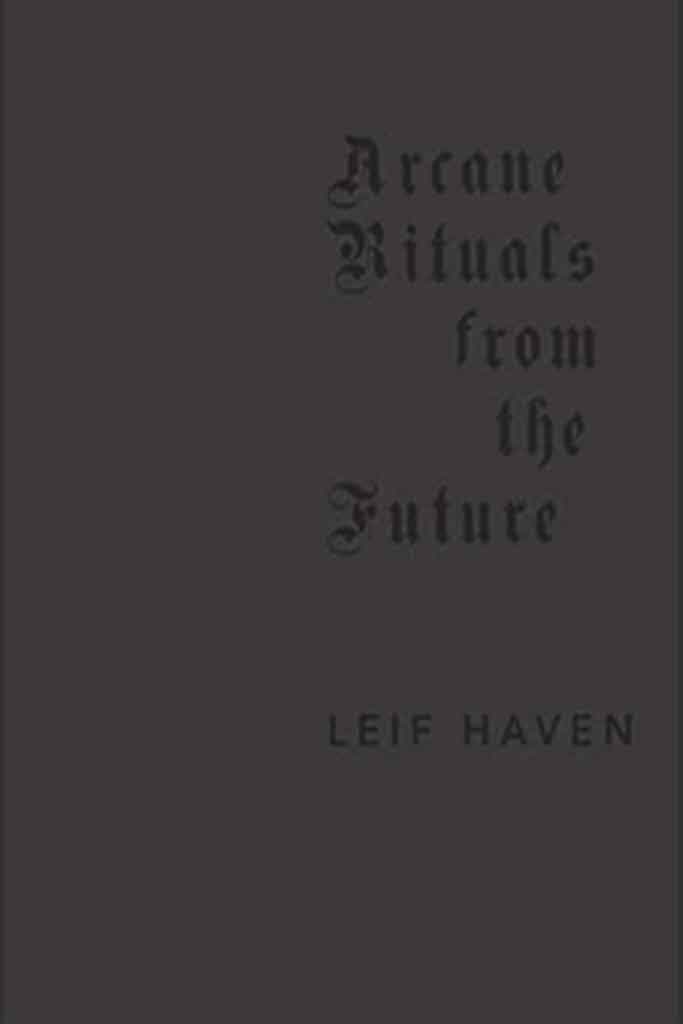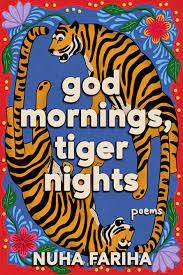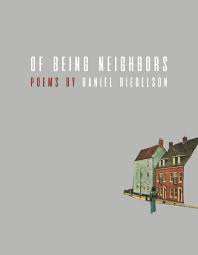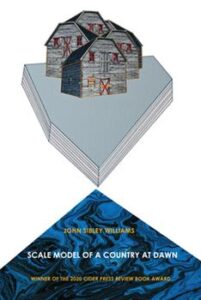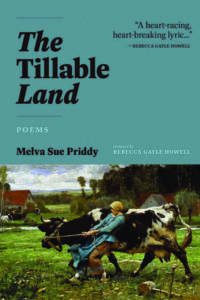Review by Justin Goodman // March 13, 2017
1913 Press, 2016
Paperback, 100 pp. $15.00
Exhortations are poetic. Think Homer’s “Tell me, O Muse,” to Rilke’s “you must change your life,” to Whitman’s “This is what you shall do.” One can say they are diaristic, but it is more an acknowledgement of one’s temporality; poems are extended as offerings, loving suggestions, even an occasional plea. Not so much an alarm clock as a handshake. It’s this extension of the self that Leif Haven offers in his debut poetry collection, Arcane Rituals from the Future, selected by Claudia Rankine for the 1913 First Book Prize, whose title is aptly confusing at first glance. Aren’t “arcane rituals” associated with historical figures like Aleister Crowley? How can they be from the future, and how does one perform something “from” the future? After all, poetry is always already in the past since it’s been written down, so how does a reader understand this translation of the future from the past? As Leif Haven states in an interview in The Conversant: “it doesn’t seem to matter if there is a right answer, and maybe an impossible question with no right answer is the best starting point.” Exhortations as poetry are independent of conclusion.
Leif Haven is no novice to poetic consideration–he has 5 published chapbooks–and Arcane Rituals is a cohesion of his previous works’ temperaments, which run the gamut from sentimental to comic, such as in his chapbook, The Joy of Pain, a poetic transcription of words from Bob Ross in The Joy of Painting. However, Arcane Rituals is more cryptic and atomic than his prior collections; overall, it is a purposefully unbalanced series of poems. At times with the playful erudition of Ben Lerner’s The Lichtenberg Figures, at others contorting words into art pieces as serious and dense as a Donald Judd sculpture: the collection begins “in the era that would be called THE ABERRANT PLATTER” where “loamy with fables the sky mumbled down fresh new covenants” in an almost religious epiphany until “the sky kept a pocketbook and marked in it.” In an instant, the mood pivots from an ultramundane vision to mundane accounting–a summary of a collection where the self must supercede the supernatural in the pursuit of the quotidian.
With gentle pleadings to “imagine,” Arcane Rituals‘ “Instructions for Making a New World”seems to be meant less as a poetry collection than as an art object. “Imagine,” it exhorts, “something heavy.” Now in untitled poems, where before the poems were numbered, with occasional titles, the nameless voice desires the impossible. There’s a great deal of Whitman’s “For every atom belonging to me as good belongs to you” except it foregoes the naturalism, the romanticism, the familiarity of the old poet. There is just the distance of one self to another: “I don’t know how you can turn, and conceiving the steps to complete the return, go about them”. It is like having a sense of touch, but no access to it; “Imagine the mind of the thing you started with. That is now your mind. The mind of something that is heavy…” And somehow, this is very sad.
After all, the uncertainty for imaginative action is central to the future of the title. The section’s concluding sentiments circle Haven’s investment in the unnamed speaker’s imagining —
And there is no suitable namer yet born but i am saying
It now i am saying it and i am giving
It though not suitable a name so it will be so the time
Will hold like brass unto the name that it is
Here is, in a way both sudden and expected, the sharpest turn of the collection – not bereavement because of a seemingly implacable distance, but a celebration of the inevitable coming-to-be this distance suggests. “In that way,” in using the imagination to face down the impossible future, “aren’t we…pursuing an impossible project” Haven would ask. Always.
It’s fitting that Claudia Rankine chose this collection as the winner of the 1913 First Book Prize. In a sense, it is a version of her Don’t Let Me Be Lonely, vying for love and affection in a world making impossible demands–a lack of imaginative empathy for Rankine, a feeble imagination for Haven–where the possibility of the impossible is what’s at stake. There is urgency, that is, and yet “the wafers are a simple goodness.” This communion with poetry is a recognition that “there is no guide into the place that you might be going to so don’t hesitate to take one.” It is a recognition that the future might not even exist. Arcane Rituals is a cherishable object because of the untranslatability of the future it exposes and the amount of pressure it puts on the powers of imagination. As Haven meditates in “Stream” from The Joy of Pain, “I like to make bushes/just to show how easy it is to create/some of these illusions.”
ABOUT THE REVIEWER
Justin Goodman earned his B.A. in Literature from SUNY Purchase. He is currently the Assistant Fiction Editor at Boston Accent Lit and Assistant Reviews Editor at Newfound. His writing–published, among other places, in Cleaver Magazine, TwoCities Review, and Prairie Schooner–is accessible from justindgoodman.com.


